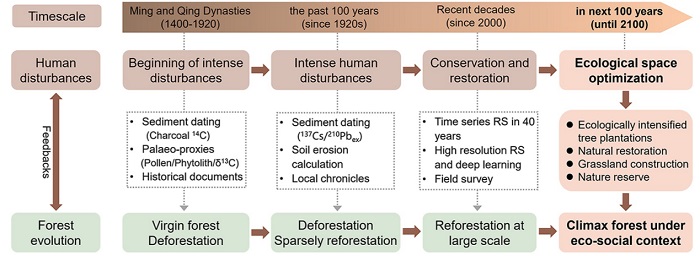A New Socio-Ecological Framework for Sustainable Reforestation in Karst Regions
South China Karst, the world's most concentrated karst area, has reduced rocky desertification through extensive conservation and restoration over the past two decades, making it a global "greening" hotspot. However, the sustainability of this trend remains uncertain, facing challenges in afforestation site selection, forest productivity, ecosystem services, and balancing "greening" with economic benefits.
Researchers led by Prof. WANG Kelin from the Institute of Subtropical Agriculture, Chinese Academy of Sciences, have proposed a socio-ecological framework to enhance the sustainability of ecological restoration in karst regions under geological constraints.
In their latest study published in Earth’s Future on May 14, both the natural and social dimensions of rocky desertification controls are reviewed for the first time, and a socio-ecological framework focusing on forest degradation, carbonate rock constraints, and human impacts was proposed. This framework optimizes future ecological spaces by considering socio-ecological backgrounds and establishing long-term human-ecosystem interactions. It incorporates historical changes, identifying key periods of human disturbance and forest evolution in Southwest China's karst region. Using sediment analysis, historical records, remote sensing, and deep learning, the team reconstructs forest evolution since the Ming-Qing dynasties, providing a scientific basis for optimizing ecological restoration in karst regions.
“This framework can be applied to ecological restoration in vulnerable areas with diverse socio-ecological contexts.” said Prof Yue Yuemin, corresponding author of the study. “By analyzing forest dynamics and deforestation processes, it deepens our understanding of how forests respond to human activities and climate change, informing decisions on the need for restoration efforts.”

Sustainable Reforestation Framework Integrating Human Disturbance and Forest Evolution. (Image by Yuemin Yue)
Contact:Yueming Yue
E-mail:ymyue@isa.ac.cn
Download attachments: